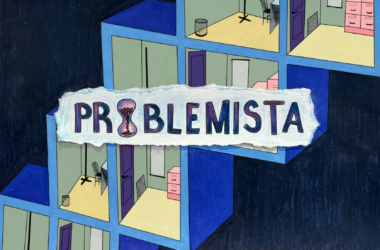If Shakespeare didn’t write any of his plays, who did? That’s the scenario of Roland Emmerich’s newest film, Anonymous. The film pits Shakespeare the person against Shakespeare the bard, but barely scratches the surface of the complex history of Shakespeare and his works.
Based on the Oxfordian theory of Shakespeare authorship, the film proposes that the true author of Shakespeare’s works is actually Edward de Vere, 17th Earl of Oxford (Rhys Ifans), writing the plays of Henry V and Richard III to voice his ideas amidst the political games of succession between the Tudors and puritanical Cecils. However, because of his title, he cannot publish the works under his own name. Enter Ben Johnson (Sebastian Armesto). Edward de Vere employs Johnson to publish the plays under his own name, but he’s a proud writer who is repulsed by the request, and publishes the plays under the name Anonymous instead. William Shakespeare (Rafe Spall), an actor, seizes the opportunity to portray the author, becoming an infamous playwright with the mob. From here, the film spirals into a story of deceit, betrayal, greed, forbidden love, and jealousy.
John Orloff’s script is a persuasive essay against the long-standing institutionalized theory of Shakespeare known to all scholars and students of English literature. However, while every trailer for the film assures us a chance to decide whether Shakespeare was the writer or not, Spall’s portrayal of Shakespeare as an intellectually stupid knave leaves no room for interpretation. We are never given a chance to decide for ourselves.
Anonymous was created like a Wikipedia article, where there is enough information to make a minimal claim, but not enough information to provide any in-depth details. It posits itself as found fact instead of suggesting an alternative inspection of Shakespeare. Audience members who have not taken a Shakespeare class at university will find themselves lost in an episodic narrative and not everyone will understand the subtle characters and Shakespearean references.
Amidst the film’s massive flaws, Rhys Ifans’ outstanding performance is the only poetically beautiful strand throughout the film. Ifans, fondly known for playing Spike in Notting Hill, was exceptionally different from his usually comedic roles. Besides the make up, Ifans’ subtle gestures and mannerisms painted a haunting image of the Earl of Oxford. Every movement, from the way he rubs his inked fingers together to the way he speaks, imparted a story of a tormented soul.
Besides performances, the palette of the film was beautifully constructed to represent the Elizabethan era with burnt golden hues matching the time of Elizabeth I’s golden age. The digitally composed sets were also impeccably realistic.
The Earl of Oxford claims that “words will prevail with listeners.” Despite the film’s reflexivity, it is unlikely that the words of this film will last with its audiences.








